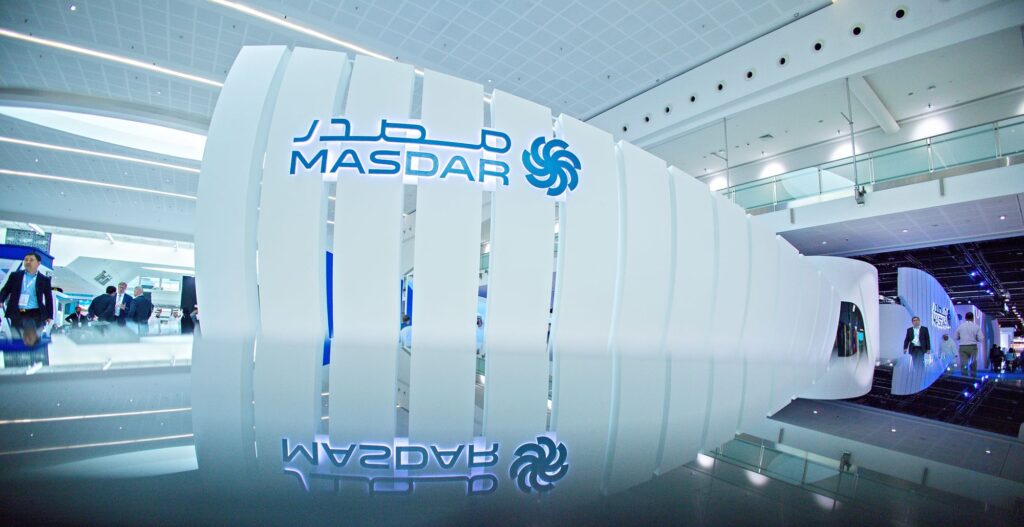Masdar Ventures into Philippines with $15 Billion Energy Investment
Hyphen Web Desk

The decision to enter the Philippine market comes as the country intensifies its efforts to transition to renewable energy sources amid rising environmental concerns. The $15 billion investment will target various energy projects, primarily focusing on offshore wind, solar power, and energy storage solutions. This strategic move is expected to position the UAE company as a key player in the region’s renewable energy transformation.
The project is in line with the Philippines’ broader goals of reducing its dependence on coal and oil imports, with the government aiming to achieve 50% of its energy mix from renewable sources by 2040. As one of the fastest-growing economies in the ASEAN region, the Philippines presents a vast opportunity for energy investors, with its abundant natural resources and ideal geographical location for renewable energy generation.
Masdar’s foray into the Philippines is also part of the company's larger regional expansion strategy. The UAE firm has been expanding its footprint in Asia and beyond, driven by its long-standing commitment to renewable energy development. With this new investment, Masdar will tap into the untapped potential of the Philippines’ energy market, characterized by a rapidly increasing demand for clean energy.
Offshore wind energy is expected to play a pivotal role in the project, given the Philippines’ ideal location along the Pacific Ocean. The country has long been recognized for its significant offshore wind potential, with studies estimating that the Philippines could generate as much as 200 gigawatts of offshore wind power. Masdar’s experience in offshore wind, especially its expertise in large-scale projects, is expected to help unlock this vast potential and support the country’s renewable energy infrastructure.
In addition to offshore wind, Masdar’s clean energy projects in the Philippines will include large-scale solar installations and energy storage systems. Solar power has been gaining traction in the Philippines, where solar irradiance levels are among the highest in the world. By tapping into these renewable energy sources, Masdar aims to diversify the nation’s energy mix while contributing to its climate resilience efforts.
Masdar’s collaboration with the Philippine government and local stakeholders is also expected to bring a range of economic and social benefits. The partnership will drive job creation, particularly in the renewable energy and infrastructure sectors. The projects will provide much-needed employment opportunities in regions outside Metro Manila, particularly in rural areas where renewable energy projects are most needed.
The investment will also support the Philippines’ long-term commitment to sustainable development. As a signatory to the Paris Agreement, the country has committed to reducing its carbon emissions and improving its energy efficiency. Masdar’s entry into the Philippine market will be instrumental in advancing these goals, accelerating the shift to a low-carbon economy.
The growing focus on clean energy in the Philippines aligns with global trends, as countries around the world seek to curb their carbon footprints and embrace sustainable energy solutions. The United Nations has warned that climate change poses a serious threat to global development, and many nations, including the Philippines, are looking for innovative solutions to meet their energy demands while mitigating environmental damage.
Experts view Masdar’s entry into the Philippines as a timely move that could provide a boost to the country’s renewable energy sector. The collaboration between the UAE and the Philippines has the potential to strengthen economic ties between the two nations while supporting the Philippines' energy transition efforts. Both governments are also expected to work closely to ensure the smooth execution of these projects, addressing regulatory and logistical challenges along the way.
Masdar’s entry into the Philippine market follows its success in other regions, including the Middle East, Europe, and Africa, where it has developed several landmark renewable energy projects. The company’s strategic investments in clean energy have helped it build a solid reputation as a global leader in sustainable energy solutions. Through partnerships with governments and private sector players, Masdar has been able to deploy cutting-edge technologies and expertise to drive large-scale renewable energy initiatives.
This venture is a critical part of the UAE’s broader strategy to diversify its economy away from oil dependency and enhance its role as a global leader in renewable energy. The UAE has made significant strides in investing in clean energy technologies, positioning itself as a hub for innovation and sustainability in the region. Masdar’s involvement in the Philippines reflects the UAE’s commitment to supporting global efforts to combat climate change and accelerate the energy transition.
Labels:
#Syndication
Share:
